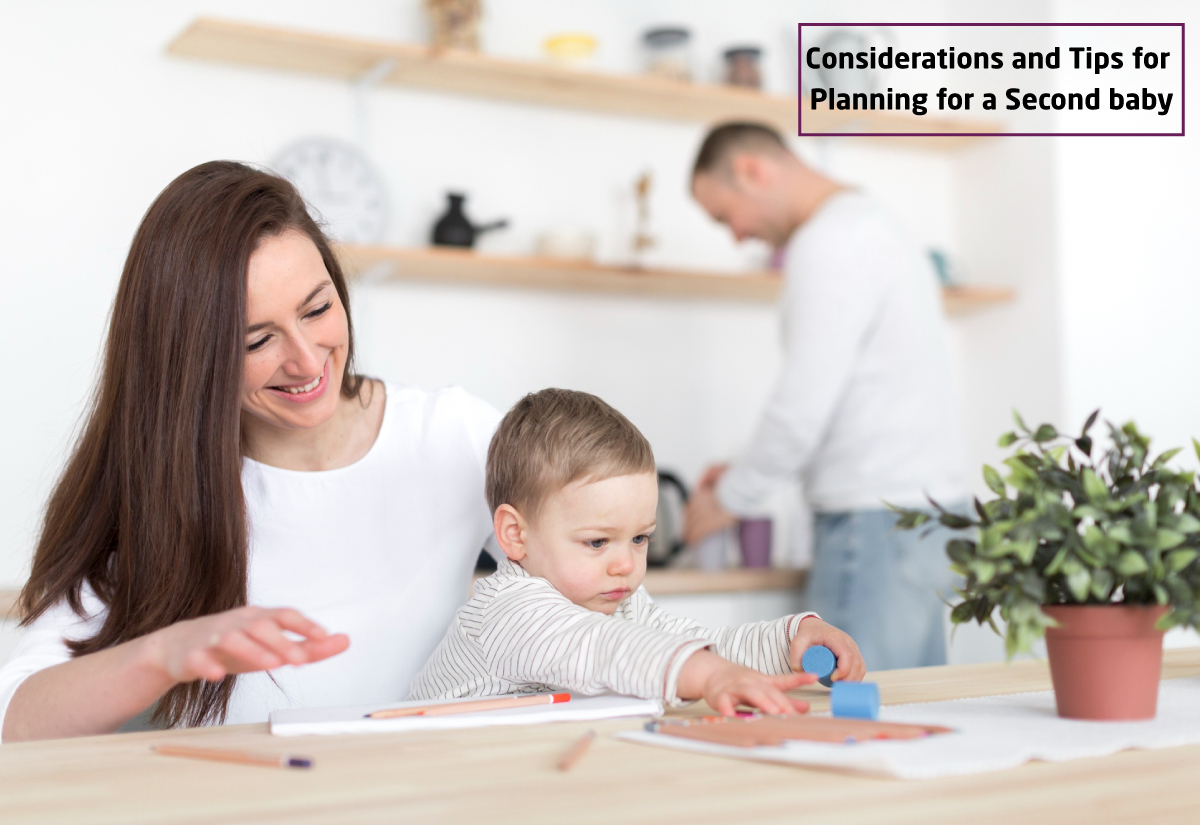Introduction:
Adding a Second baby to the family is a big deal that brings both new joys and new challenges. Whether you already have kids or are thinking about having more, planning and getting ready ahead of time can help make the process go smoothly for everyone. This complete guide will talk about important things to think about when planning for a second child, as well as give you expert advice on how to go through this life-changing process with confidence and ease.
Must Read: 10 Ways to Support Baby’s Brain Development in the Womb
Financial Preparedness:
- Budgeting for Two:
- Take a look at your current finances and make changes to your budget to fit the needs of a growing family. Think about the costs of things like daycare, medical care, school, and other necessities for two kids.
- Savings and Investments:
- Set aside money in savings for emergencies and costs that come up out of the blue. To protect your family’s future, look into investments like college savings plans or retirement accounts.
Timing and Age Gaps:
- Ideal Spacing Between Siblings:
- Think about the best age gap between your kids based on your own preferences, the ages of your parents, and research on child development. Experts say that siblings should be at least two to three years apart so that each person can get enough attention and the siblings can bond.
- Fertility Considerations:
- If you had trouble getting pregnant with your first child, talk to a doctor to find out how likely you are to get pregnant again and to explore your options. Be ready for problems that might come up, and think about seeing a doctor as soon as possible.
Emotional Readiness:
Parental Readiness:
Think about whether you’re emotionally ready to have another child and grow your family. Think about things like your parenting experience, the support systems that are available to you, and your own goals and dreams.
Sibling Dynamics:
Plan for possible changes in how siblings interact with each other and get your older child ready for the arrival of a new sibling. Include them in conversations about the upcoming change and encourage them to take part in preparations that are right for their age.
Health and Wellness:
Preconception Health:
Put your health before getting pregnant first by eating well, working out regularly, and taking care of any underlying health problems. If you want to get pregnant, talk to your doctor about prenatal vitamins and counseling before you get pregnant.
Emotional Support:
The ups and downs of family planning and pregnancy can be hard on your emotions. Get help from friends, family, or support groups. Talk to a counselor or therapist if you are dealing with stress, anxiety, or problems that haven’t been solved.
Conclusion:
Planning for a second child requires careful consideration. Check if you’re financially ready and choose the right time. Ensure you’re emotionally prepared and that everything runs smoothly. Plan ahead and seek professional help to start this journey confidently. Focus on open communication, flexibility, and patience as you consider adding a new family member.
What is the right age or time for 2nd child?
- For each family, the best age or time for a second child is different and depends on things like parental age, health, financial stability, emotional readiness, and how the parents like their children to interact with each other. There isn’t a single right answer; each person should make their own choice based on their own needs and priorities.
Things to think about before you try to have a second child.
- Before trying to have a second child, think about your age, health, finances, emotional readiness, how you get along with your first child, and when you’d like to have the baby. Assess these things to make sure the transition goes smoothly and that you can plan your family well.

